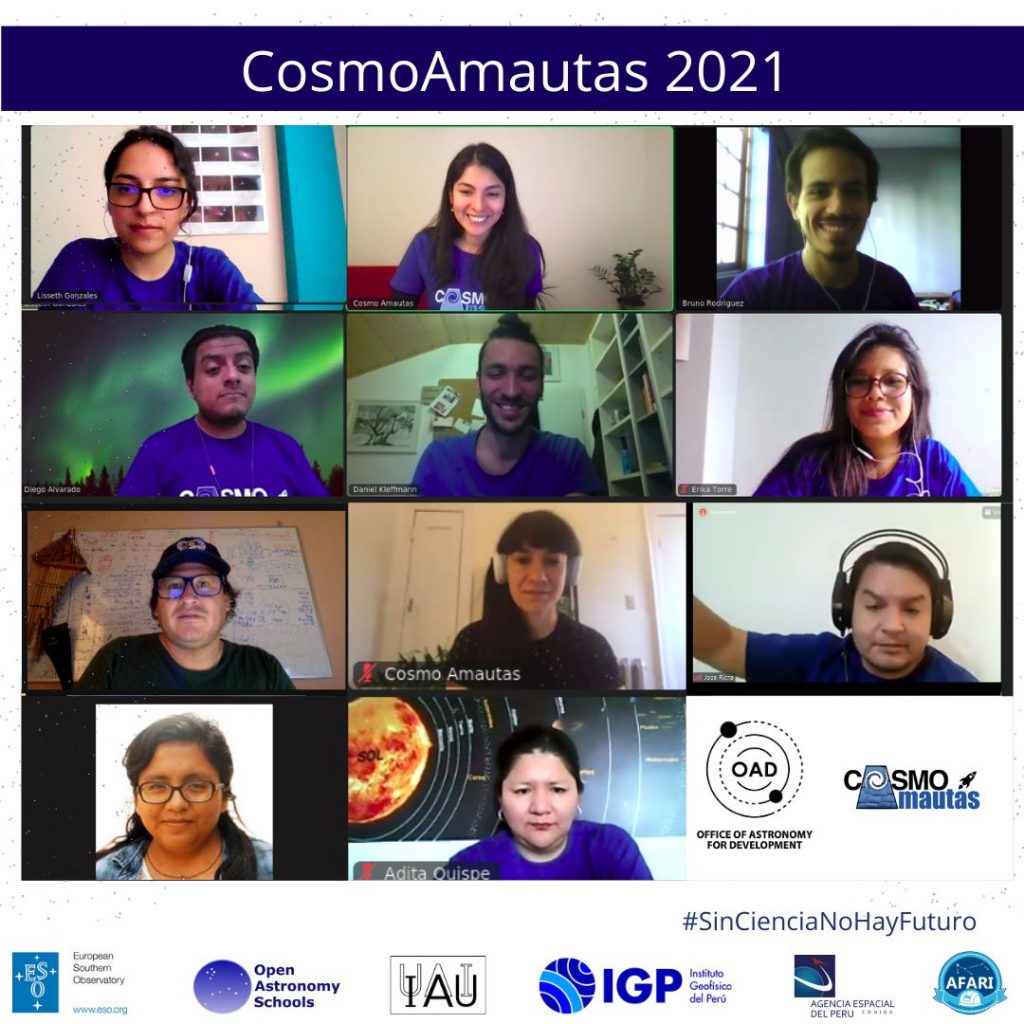The Cosmoamautas project conducted a virtual science education program for high school teachers in rural Peru. More than 90% of the teachers are now ready to delve into new/complex topics and inspire their students.
The CosmoAmautas project aimed to bring astronomy and science education to rural regions in Peru, where there is a significant deficit in scientific education. To achieve this in a sustainable and scaleable manner, the team organized a teacher training event for 50 teachers from three different regions in Peru.
The objectives of the teacher training were:
- to inspire the teachers and their students through astronomy,
- empower female teachers and promote the awareness of gender-balance in sciences,
- teach the scientific method through hands-on activities to be used in the classroom, and
- promote the opening of after-school science and astronomy clubs in rural schools.
The teacher training event was held virtually in 6 all-day sessions in April and May 2021. Fifty teachers were selected among 97 applicants. The training event included group-based hands-on inquiry learning activities and lectures on selected topics in astronomy, science education and local ancestral astronomy.
The participants reported that the workshop exceeded or met their expectations, having learned not only new concepts of astronomy but also techniques for improving their online teaching methods. 90% of the participating teachers said they definitely or very likely will reproduce the activities done in the workshops in their classroom. One third (13/40) of the teachers who actively participated in the course have opened after-school astronomy clubs in their schools, carrying out hand-ons inquiry activities with a total of 260 students currently enrolled in the Astronomy Clubs. The project has directly impacted the science education of more 250 students in rural regions who are now part of long-term scientific clubs, and has increased the interest in STEM for around 3500 students through the training of their teachers. In particular, focused discussions and presentations were held on gender balance in the classroom and on strategies that can be implemented in schools to empower girls in STEM, which will have an impact on gender inequalities in the involved classrooms.
The project has developed several resources and educational games which will be published on their website.
:quality(75)/cloudfront-us-east-1.images.arcpublishing.com/elcomercio/NLX5ZTEXXJGJXPF5ZILYHICF64.png)

